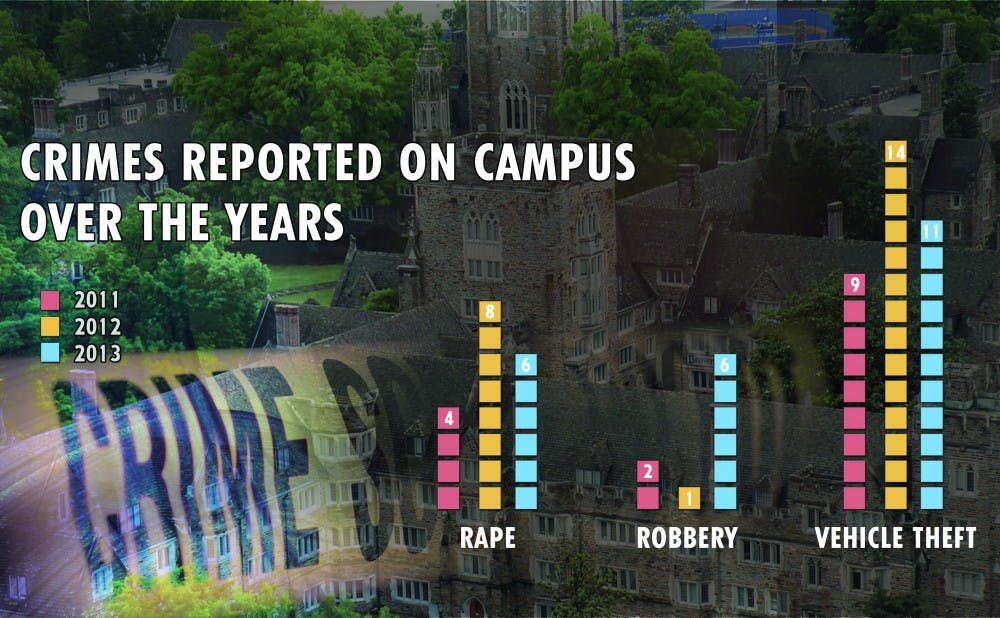Robberies on Duke's campus more than doubled in 2013—with nine reported cases compared to four in 2012.
Despite this spike, however, the 2014 Annual Clery Security Report—issued Wednesday—revealed an overall decline in almost every other major crime category. Of the reported robberies on campus this past year, three occurred in the Sarah P. Duke Gardens. Two of the individuals responsible for the robberies have been incarcerated, said Kyle Cavanaugh, vice president for administration.
He warned against overreacting to year-to-year changes in crime statistics, noting that numbers tend to fluctuate between years.
“If you take [the robberies] out, we have a normal trend in there,” he said, adding that students should focus more on the overall tendencies of crime on campus.
In 2013, the number of burglaries decreased from 62 to 46 compared to 2012. Liquor law violations cut from 542 to 290 and aggravated assault from four to one. No hate crimes or counts of manslaughter or were reported in 2013. Six sex offenses were reported—all of which were rape charges—compared to eight charges of rape last year and four cases of fondling.
Security staffing on East and Central campuses—where reported incidents of campus crime are highest—has increased in response to the robberies, Cavanaugh said. The additional patrols complement several new security additions—including the installation of new locks on Central campus, improved lighting, new fencing and removal of shrubbery. Additionally, campus police are currently investigating other ways to improve security.
“As a community, we’re always looking at what are some other things we can do to improve the health and safety of people,” he said.
This year’s report disclosed four counts of stalking, including cyberstalking, four counts of domestic violence and one incident of dating violence—in accordance with new obligations to report gender violence crimes under Violence Against Women Reauthorization Act signed into federal law March 2013. VAWA requires colleges and universities to report domestic violence, dating violence and stalking—in addition to the crime categories mandated by the Clery Act. The Clery Act, also known as the Jeanne Clery Disclosure of Campus Security Policy and Campus Crime Statistics Act, requires universities that are participants of federal financial aid programs to report annual campus crimes.
The new crime categories listed by VAWA accounted for the report’s increase in length by about 14 pages from last year, Cavanaugh noted.
Get The Chronicle straight to your inbox
Signup for our weekly newsletter. Cancel at any time.

